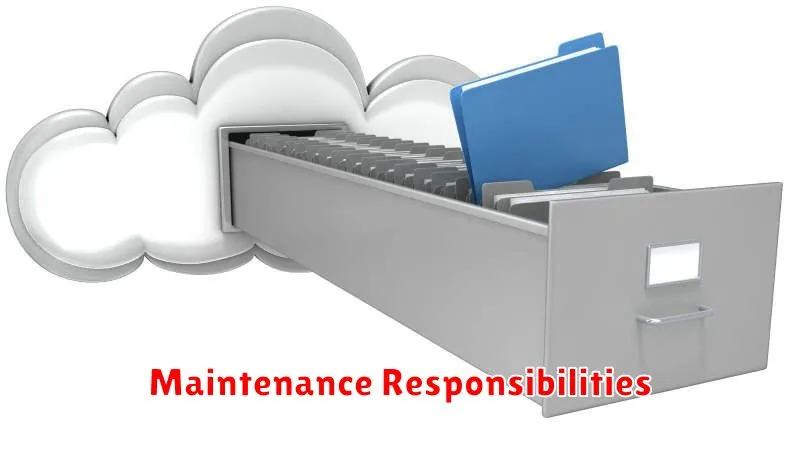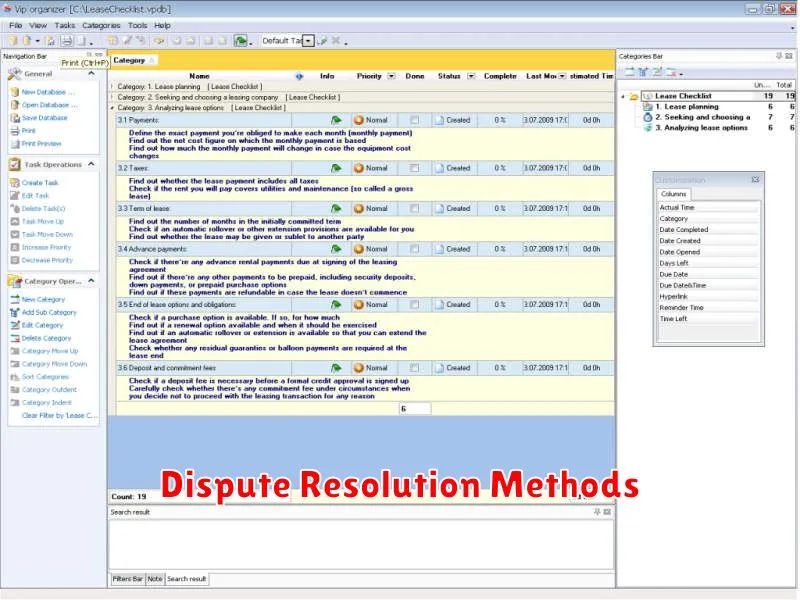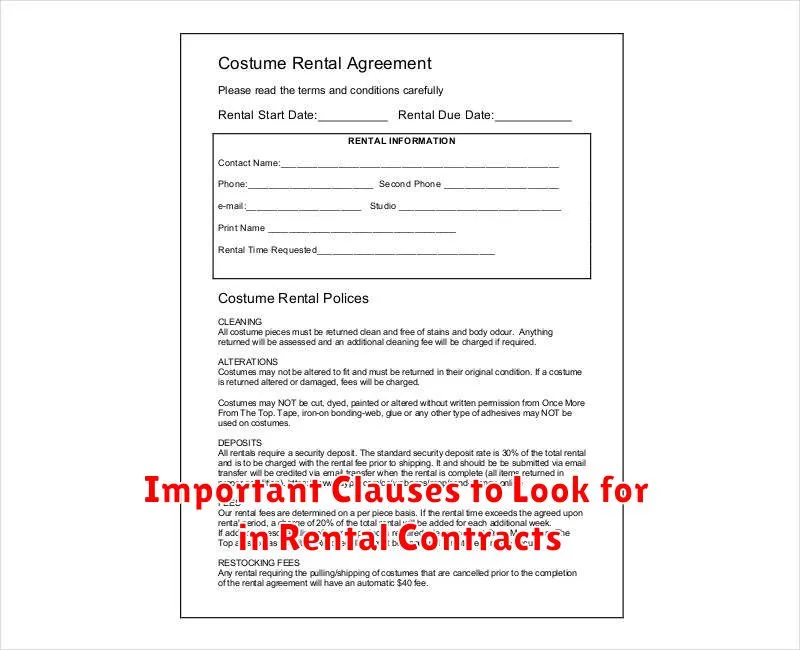Signing a rental contract is a significant commitment, marking the beginning of a new chapter in your living situation. Whether you’re renting an apartment, house, or condo, understanding the intricacies of your rental contract is paramount. Rental contracts, also known as lease agreements, outline the terms and conditions agreed upon by both the landlord and tenant. A thorough review of these clauses before signing can prevent future disputes and ensure a harmonious landlord-tenant relationship. Neglecting to scrutinize the important clauses within your rental contract can lead to unexpected financial burdens and legal complications down the road. This article will highlight some of the most important clauses to look for in rental contracts to empower you as a renter.
Navigating the complexities of rental contracts can be daunting, but focusing on key clauses will provide you with a clear understanding of your rights and responsibilities. From the lease term and security deposit to pet policies and maintenance responsibilities, understanding these essential components is crucial. By familiarizing yourself with the important clauses to look for in rental contracts, you can protect yourself from potential issues and ensure a positive rental experience. This article will equip you with the knowledge necessary to confidently review your next lease agreement and make informed decisions about your housing.
Lease Duration
The lease duration clause specifies the length of your tenancy. It’s crucial to understand the difference between a fixed-term lease and a month-to-month lease.
A fixed-term lease locks you in for a specific period, typically one year. Breaking the lease early can result in penalties. A month-to-month lease offers more flexibility, allowing either party to terminate with proper notice, usually 30 days.
Carefully consider your needs and plans when deciding on a lease duration. A fixed-term lease offers stability, while a month-to-month lease offers flexibility.
Rent Payment Details
The rent payment clause should clearly outline the amount of rent due, the due date, and the accepted payment methods. Ensure the lease specifies the date rent is due each month and the acceptable forms of payment (e.g., check, electronic transfer). Late payment penalties should also be explicitly stated, including the grace period, if any, and the late fee amount.
Additionally, this section should specify where the rent payment should be sent. Whether it’s a physical address, a bank account for wire transfers, or an online payment portal, this information is crucial. Clarifying these details upfront prevents future misunderstandings and disputes.
Security Deposit Terms
The security deposit is a crucial aspect of any rental agreement. It protects the landlord against potential damages or unpaid rent. The lease should clearly state the amount of the security deposit, which is often equivalent to one or two months’ rent.
State laws often regulate how security deposits are handled. Pay close attention to the stipulations regarding the return of the deposit. The lease should outline the timeframe within which the landlord must return the deposit after the lease terminates, and specify permissible deductions. Acceptable deductions typically include unpaid rent or repairs for damages beyond normal wear and tear.
Maintenance Responsibilities

A crucial clause outlines who is responsible for what repairs and maintenance. Landlord responsibilities often include structural issues, major appliance repairs (like the HVAC system), and plumbing problems. Tenant responsibilities might include minor repairs, light bulb replacements, and yard upkeep.
Clearly defined responsibilities prevent disputes later. Look for specifics regarding pest control, appliance malfunctions, and damage from normal wear and tear versus negligence. Timeframes for addressing issues should also be specified.
Entry Notification Rules
Entry notification rules are crucial for protecting your privacy and ensuring appropriate landlord access. Your lease should clearly state how much notice your landlord must provide before entering your unit.
Many states mandate a minimum notice period, often 24 or 48 hours, except in emergencies. The lease may specify reasons for entry, such as repairs or inspections. Ensure the lease outlines these rules clearly to avoid potential disputes.
Familiarize yourself with your local laws regarding landlord entry. While your lease should adhere to these laws, having this knowledge provides added security and understanding of your rights as a tenant.
Renewal and Termination Options
Renewal options outline the process for extending the lease beyond its initial term. Look for clauses specifying whether the lease automatically renews, converts to a month-to-month agreement, or requires a new lease agreement. Pay attention to any required notice periods for both landlord and tenant regarding renewal intentions.
Termination clauses detail the circumstances under which the lease can be terminated before its expiration date. This includes stipulations for both landlord and tenant initiated termination. Common reasons for tenant-initiated termination include military deployment or job relocation. Understand the potential financial penalties, such as early termination fees or forfeiture of the security deposit, associated with breaking the lease.
Pet and Guest Policies
Pet policies are a crucial aspect of rental contracts. These policies typically outline acceptable pet types, breeds, and sizes, as well as any associated fees or deposits. Some contracts may prohibit pets altogether. Carefully review these clauses to ensure they align with your needs and avoid potential conflicts.
Guest policies outline the rules and limitations regarding having guests stay in the rental unit. Contracts may specify the maximum duration of a guest’s stay or require prior landlord approval for extended visits. Understanding these guidelines is important for both tenants and landlords to maintain a positive living environment.
Utilities and Additional Costs
A crucial aspect of any rental agreement involves outlining which utilities are included in the rent and which are the tenant’s responsibility. Carefully review this section to avoid unexpected expenses. Common utilities include water, electricity, gas, trash removal, and internet/cable.
The lease should clearly state who is responsible for paying each utility and how the billing will be handled. Some landlords include certain utilities in the rent, while others require tenants to set up accounts directly with utility providers.
In addition to utilities, inquire about other potential costs. These might include parking fees, pet fees, or amenity charges. Ensure these are explicitly stated in the lease to prevent disputes later on.
Early Termination Conditions
Early termination clauses outline the circumstances under which you or the landlord can end the lease before its expiration date. Understand the specific reasons allowed for termination, such as job relocation or military deployment. Pay close attention to any associated penalties, which can include forfeiting your security deposit or paying a portion of the remaining rent.
The clause should also clearly state the required notice period for termination. This is typically 30 or 60 days, and ensures both parties have adequate time to prepare. Look for language addressing the handling of prepaid rent and the process for returning the property keys upon early termination.
Dispute Resolution Methods

A well-drafted lease should outline the process for resolving disputes. This clause details how disagreements between landlord and tenant will be addressed, whether through mediation, arbitration, or legal action. Understanding this process is crucial for both parties.
Mediation involves a neutral third party facilitating communication to reach a mutually agreeable solution. Arbitration involves a neutral third party making a binding decision after hearing evidence. Specifying the preferred method upfront can save time and money should a dispute arise.

